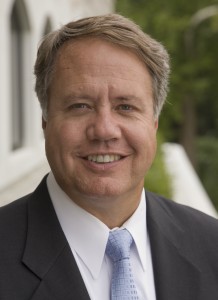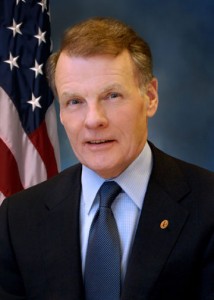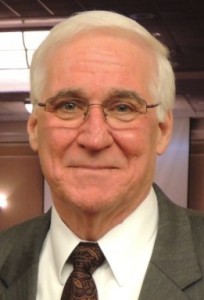
By CARL GREEN
Illinois Correspondent
Springfield IL – When the Illinois General Assembly adjourned, legislators left dozens of issues up in the air, including some of specific interest to union members and the Metro-East.
Those items will now have to wait at least until this fall’s veto session, which is held to consider possible overrides to the governor’s vetos but sometimes functions much like a regular legislative session.
RESPONSIBLE BIDDER
One issue is the “responsible bidder” requirement that would make bidders on local government construction projects meet tests for paying prevailing wages, equal opportunity hiring, liability coverage and apprenticeship participation to provide some assurance that work will get done properly, on time and on budget.

This is already required for statewide projects, but Rep. Jay Hoffman (D-Swansea) has been trying to make it a requirement for most local projects, too. He chairs the House Labor and Commerce Committee, where much of the legislation affecting labor passes through.
The measure is considered helpful to unions because most union contractors can meet the requirements while many non-union companies will not.
Hoffman’s bill was passed by the House, but it never came up for a vote in the Senate.
“I hope that in the veto session, it will have a shot of passage. It’s not done yet,” he said.
MINIMUM WAGE
Labor was also supporting the push to increase the minimum wage in Illinois for adults over 18 to $10 an hour from the current $8.25. The plan got as far as passing a House committee, but House Speaker Michael Madigan finally held back the bill because he didn’t think it had enough votes to pass the full House.
Instead, the question was referred to a non-binding referendum on this fall’s ballot. Madigan’s hope is that if voters give it a ringing endorsement, legislators will then have the courage to vote for it. That would not only provide much-needed extra cash for the poor and low-wage workers, it would lift the state’s economy because they would spend the money on necessities instead of hoarding it, economists say.

“This is an opportunity for the voters of Illinois to weigh in on this very important issue,” Madigan told the Chicago Tribune. “I believe the issue deserves a statewide discussion. It’s clear we need to be doing more to reduce economic inequality.”
Gov. Pat Quinn and Hoffman both support the minimum wage increase. “I think that more likely than not, it will be overwhelmingly approved, which would pave the way for passing the increase,” Hoffman told the Labor-Tribune.
TOUGHER VETOES
Another referendum proposal, not yet approved by the State Board of Elections last week, would shrink the Senate from 59 to 41 seats, increase the House from 118 to 123 and make it harder for the Legislature to override vetoes by the governor.
The measures are part of a plan that also includes term limits of eight years total service in the Legislature. Vetoes would require a two-thirds vote from each chamber, not three-fifths it is as now.
The plan is supported by the Republican candidate for governor, Bruce Rauner, who likely would face a Democrat-dominated legislature if he defeats Quinn in November.

Dale Stewart, executive secretary-treasurer of the Southwestern Illinois Construction Trades Council, said the proposal, especially the part making it tougher to pass a veto, is a ploy to make Rauner more powerful if he wins.
“That’s the key thing right now – the veto power,” he told the Council.
The plan appears to have enough signatures to go on the ballot but has been challenged in court.
Stewart noted that while many in the labor movement are unhappy with Quinn, the truth is that under Quinn, Illinois has signed more Project Labor Agreements assuring union hiring than all other states put together.
“That tells us something – we’ve got something going for us,” Stewart told the Council, urging the members to help Quinn win re-election. “We’ve got our work cut out for us. We’ve got to get to work on this.”
FIREFIGHTERS
Hoffman also had success sponsoring legislation sought by the Illinois Association of Firefighters.
One bill passed by the Legislature will protect firefighters in contract negotiations with local municipalities by barring towns with 500 or more residents from unilaterally dissolving their fire departments without a vote from district residents.
Another measure would allow municipalities to consolidate their fire departments with those of other towns when their communities can no longer support them, creating a Unified Fire Protection District. A referendum would not be needed for consolidation, and firefighters would retain their employment rights.
The bills were passed by both legislative houses and await the governor’s signature.
CENTRAL PORT
Also sent to the governor was a plan sponsored by several Metro-East legislators to expand the boundaries of the old Tri-City Port District and officially change its name to the one it has been using, America’s Central Port.
The Port District seeks to use Mississippi River facilities and locations to create new industrial development. Currently, at its Granite City site, it has about 70 tenants that support 1,500 jobs and contribute some $282 million a year to the regional economy.
The expansion will take its operating area all the way north and west along the river to its juncture with the Illinois River in Jersey County and could promote job growth.
The bill was sponsored in the Senate by Sen. Bill Haine (D-Alton) and in the House by Reps. Dan Beiser (D-Alton), Eddie Jackson (D-East St. Louis) and Hoffman.
CASINO GAMBLING
Plans to increase casino gambling in the state, including at horseracing tracks and a new casino in Chicago, met substantial opposition, some of it over a provision to exclude Fairmount Park in Collinsville in order to protect the Casino Queen in East St. Louis.
Hoffman said such a measure would be the “last nail in the coffin” for Fairmount. “That would cost a lot of people their jobs,” he said.
So he filed an amendment to require that Fairmount be included. Ultimately, the fight was avoided because the casino legislation never came out of the Senate.

